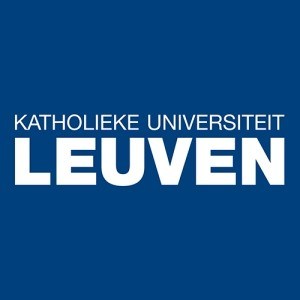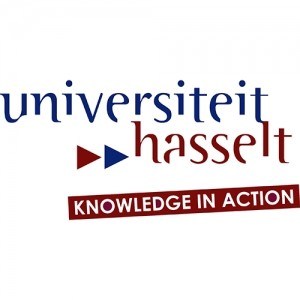Photos of university / #kuleuven
The Bachelor of Science in Geography at KU Leuven offers students a comprehensive introduction to the diverse and dynamic field of geography, combining theoretical knowledge with practical skills to understand the complex relationships between humans and their environment. The program is designed to equip students with a solid foundation in physical and human geography, spatial analysis, and geographic information systems (GIS), enabling them to analyze spatial phenomena and contribute to sustainable development and environmental management. Throughout the three-year course, students explore various geographical themes such as climate change, urban planning, migration patterns, resource management, and ecosystem dynamics. They are encouraged to develop critical thinking, problem-solving abilities, and research skills through diverse coursework, fieldwork, and project-based learning. KU Leuven emphasizes an interdisciplinary approach, integrating insights from social sciences, natural sciences, and technology to provide a well-rounded perspective on geographical issues. The program also offers opportunities for international exchange, internships, and collaborations with research institutions, preparing graduates for career paths in environmental consultancy, urban planning, governmental agencies, and international organizations. With a faculty renowned for its research excellence, students benefit from cutting-edge resources and a vibrant academic community dedicated to addressing global challenges through geographical research and innovation. Upon graduation, students will possess the analytical tools and practical knowledge necessary to contribute meaningfully to addressing societal and environmental challenges at local, national, and international levels.
Common Basis
Human-Environment Interactions
- Environmental Change
- Geography of Globalisation
- Society Environment Interactions
Research Methods in Geography
- Geographical Research Methods 1: Earth Observation
- Geographical Research Methods 3: Numerical Modelling
- Geographical Research Methods 2: Survey and Data Analysis
- Research Seminar
Profile
The students choose one of the profiles, in which they will also make their master thesis.
EARTH AND CLIMATE
- Physical Geography Field Trip Abroad
Earth Surface Processes
- Soil and Water Conservation
- Tectonics and Geomorphology
- River Geomorphology
- Natural Hazards
Ice and Atmosphere
- Atmospheric Modelling
- Dynamics and Modeling of Glacial Systems
- Remote Sensing of the Atmosphere
Strenghtening Courses
Students choose module "Development" or module "GIS and Earth Observation".
Students complete their program by taking courses from the other choice module, from the other profiles, or from the list of elective courses.
- Natural Risk Management
- Geography of Developing Countries
- Agro-Systems
- Spatial Databases
- Modelling Land Use Changes
- Advanced Earth Observation Techniques
- Practical Geostatistics
- Hydrogeology
- Geological and Geotechnical Aspects in Coastal Lowlands
- Surface Water Hydrology
- Stable Isotope Geology
- Global Biogeochemical Cycles
- Natural Resources Economics and Policy
- GIS Programming
- Urban Political Ecology
- Operational Meteorology
CITY, SOCIETY AND SPACE
- Social and Economic Geography Field Trip Abroad
- Space, Society and Policy
- Housing
- Economic and Financial Geography
- Geographies of Mobility and Transportation
- Urban Social Geography
- Cultural Urban Geography
- Urban Political Ecology
- Urban Studies: Research Methodology, part 1
- Theory of Urban Planning and Design
- Strategic Spatial Planning
- Landscape 2
- History of Urban Design
- Culture and Tourism
- Heritage and Sustainable Tourism Development
- Destination Development
- Modelling Land Use Changes
- Advanced Earth Observation Techniques
- Interdisciplinary Perspectives on Development and Cultures
- Urban Anthropology
- Development Cooperation
- Geography of Developing Countries
- Natural Resources Economics and Policy
- European Population Issues
GIS AND SPATIAL MODELLING
- Physical Geography Field Trip Abroad
- Social and Economic Geography Field Trip Abroad
- Spatial Databases
- Spatial Data Infrastructures
- GIS Programming
- Advanced Earth Observation Techniques
- Natural Risk Management
- Modelling Land Use Changes
- GIS Internship
- Space, Society and Policy
- Natural Resources Economics and Policy
- Urban Political Ecology
- Geographies of Mobility and Transportation
- Object Oriented Programming
- Agricultural Economics and Food Policy in Developing Countries
- Basic Programming
- Sustainable Mobility and Logistics
- Remote Sensing of Vegetative Systems
- Generalized Linear Models
- Remote Sensing of the Atmosphere
- Geography of Developing Countries
- Destination Development
Requirements
- Bachelor's degree
- Applicants with a Belgian diploma: these applicants do not have to take an English proficiency test.
- Applicants with a university degree earned in Australia, Canada, Ireland, New Zealand, United Kingdom or the USA: the certified diploma and transcripts suffice, provided they confirm that the entire university study was completed in English. Absolutely no other diplomas will be accepted as evidence even if the applicant has followed an exclusively English-taught programme.
- Other applicants should submit a satisfactory score on an internationally recognized test of English language proficiency: TOEFL (minimum score 94 internet-based with at least 19 for reading, 18 for Listening, 19 for speaking and 21 for writing) or IELTS (minimum score 7 overall, whilst at least 6,5 for reading, 6 for listening, 6 for speaking and 6 for writing).
- Certified copies of transcripts and diplomas are required for all applicants. These documents also suffice for applicants from
* universities that have an exchange agreement with the Faculty of Science of KU Leuven
* universities that are in the global top 200 in the most recent Times Higher Education or QS rankings - A complete list of course titles for which you have obtained a credit should be part of this. Indicate the course size (in ECTS-credits) and the result you obtained, preferably according to the ECTS-scale; if a different scale is used, please provide an summary explanation on the meaning of the scores.
- For the courses that you deem most relevant as a preparation for the master that you are considering, provide a short (about one half to one page) description according to the standard guidelines for an ECTS-study guide.
Tuition fees for the Geography program at KU Leuven vary depending on the student's residency status and study load. For Flemish students, the annual tuition fee is approximately €940 for bachelor's programs and around €1,750 for master's programs. Non-EU international students pay higher fees, typically around €4,175 per year for bachelor's studies and approximately €3,950 for master's studies. These fees are subject to change and may vary based on specific course components or credit load.
Students seeking financial support can explore several options. KU Leuven offers scholarships and grants for both Flemish and international students, which are awarded based on academic excellence, financial need, or specific criteria set by the university or external organizations. The university's scholarship portal provides detailed information about available grants, application procedures, and deadlines. Additionally, students may consider government student loans or grants available in their home country, which can help cover tuition fees and living expenses.
Part-time employment opportunities are also available on and around campus, allowing students to earn income during their studies to support themselves financially. KU Leuven has a Student Job Service that provides guidance and assistance in finding part-time jobs suitable for students' schedules.
Living costs in Leuven include accommodation, food, transportation, insurance, and leisure activities. Accommodation options range from university dormitories to private rentals, with prices typically between €300 and €600 per month depending on the location and type of housing. Students are advised to budget approximately €800 to €1,200 per month for living expenses, including all costs.
International students are encouraged to apply early for scholarships and accommodation to secure their place and reduce financial uncertainties. They should also ensure they have the necessary health insurance coverage, which may be mandatory for residence permits.
In summary, the financing of the Geography program at KU Leuven involves tuition fees that vary by student profile, availability of scholarships and grants, possibilities for part-time work, and careful planning of living expenses. By combining these financial resources, students can effectively manage the costs associated with their studies at KU Leuven.
The Bachelor of Science in Geography at KU Leuven offers students a comprehensive overview of the physical and human aspects of the Earth's surface. This program is designed to develop a strong understanding of spatial phenomena, environmental issues, and the dynamic interactions between societies and their environments. Throughout the program, students explore various geographic disciplines, including physical geography, human geography, geographic information systems (GIS), and spatial analysis. The curriculum emphasizes a multidisciplinary approach, integrating aspects of geology, climatology, urban planning, and sustainable development to prepare graduates for diverse careers in research, policy-making, environmental management, and consultancy. The program combines theoretical coursework with practical skills, providing students with opportunities for fieldwork, internships, and projects to apply their knowledge in real-world contexts. KU Leuven’s geography program promotes critical thinking, analytical skills, and an awareness of global challenges such as climate change, resource depletion, and social inequalities. Students are encouraged to engage in international exchanges and collaborative research to broaden their perspectives. The program is typically completed over three years, culminating in a bachelor's degree that lays a solid foundation for further study at the master’s level or entry into professional fields related to geography. The university's facilities include modern laboratories, extensive libraries, and dedicated GIS resources, supporting a high-quality learning environment. Graduates of the Geography bachelor’s program at KU Leuven are well-equipped to pursue careers in urban planning, environmental consultancy, geographic information systems, transportation, and many other sectors that require spatial and environmental expertise. For students interested in research or academia, the program provides a stepping stone towards master’s programs and doctoral studies, fostering an academic community committed to advancing geographic knowledge and addressing societal challenges.



